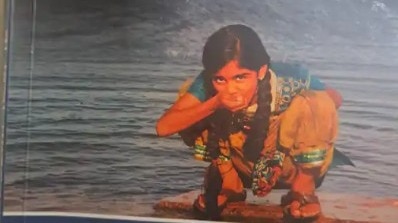You must have heard that saying in English – ‘An apple a day keeps the doctor away’, the Hindi translation is that eat an apple a day and stay away from the doctor, it means that you will remain healthy.
But do you believe that this is really so? India… which is diverse and rich in terms of language, dialect, clothing, environment and food as well as fruits, why is only one apple so essential? Is this an example of the slave mentality that has settled in our minds and made its home?
Writer Amitabh Satyam answers such interesting questions in his book ‘Woh Hindi Medium Types’. He writes that the English medical system has made expensive fruits like apples such a necessity, whereas cheaper and local-seasonal fruits often prove to be more beneficial instead. They argue – If you have studied in English medium then you would also believe that eating an apple every day will keep you healthy. Whereas guava is more beneficial than apple and in rural India it is also called the apple of the poor. In this way, this English proverb should be spoken in India that ‘Eat one guava every day, send the doctor away.’ not apple’
The book ‘Woh Hindi Medium Wala’ exposes in front of us, layer by layer, those feelings of pressure that a common Hindi speaking person, unnecessarily, feels among the English speaking people. He is also afraid that he might be considered incompetent. While he is more efficient and capable than anyone else in his work, he gets defeated at a place where the fear of an ‘English mob’ dominates the heart and mind.
Through many such examples, the author puts forward that the era of colonial slavery has not yet gone from the mind. The entire book makes this point very convincingly. Through the mention of his travels abroad, the author also explains how Indian inventions and culture have also been appropriated. How did India not succeed in projecting its culture at the global level after independence?
Amitabh writes that nowadays no one even thinks that English is the language of those foreigners who ruled us by force and exploited us a lot. Crores of Indians, who were once leaders in science, engineering, literature, medicine, philosophy and art, were declared illiterate in one fell swoop. As per the decision of the English speaking people, the greatness of India was rejected outright and the language and culture of the British was imposed on the public mind as being superior. Jobs were available only to those who spoke the English language and followed them. The governance was in his hands only.
Today we are victims of this Englishness not only in terms of language, but also in terms of our food habits and lifestyle. Amitabh records an incident from his study days. He writes that I.I.T. Once in Kanpur, when he fell ill, bread and butter were brought to him from the hostel. He writes that ‘Bread-butter is more harmful than our normal rice, pulses, roti and vegetables. The English people eat bread when they are sick because bread is a light food compared to beef etc.; Even our normal food is lighter than the ‘food for the sick’ of the British, but in an effort to imitate them, we feed even heavier food to the sick people.
This book of 9 chapters also brings forward the language dispute of India and also explains the need for their survival. Many such examples have been given which force the reader to think about the western influence on Indianness. The name of the book may be ‘Woh Hindi Medium Wala’ but it discusses the situation of every local language of the country. The whole point of view of the author is not related to any language and is of ‘indigenous thinking versus foreign thinking’.
—- End —-
